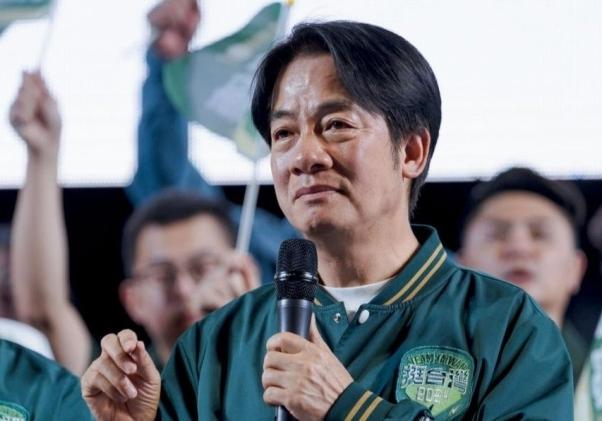Taiwan's presidential election was won by the candidate China feared most
Lai Tsing-jeou wants to get closer to the United States and resist China's intimidation

The leader of the ruling Democratic Progressive Party, Lai Tsingde, has become the new president of Taiwan, having won 40.1% of the vote.
His rival from Taiwan's main opposition Kuomintang party, Hou Yui, conceded defeat, having managed to secure the support of only 33.5% of voters, The Guardian reports.
Third place went to Ke Wen-jeou of the Taiwan People's Party, who received 26.5% of the vote. Official results will be announced in a few days.
"We are telling the international community that between democracy and authoritarianism, we will stand on the side of democracy," Lai said at a victory rally in Taipei.
He made it clear that he intends to maintain close ties with the United States, and vowed to resist threats and intimidation from China while maintaining peace, stability, and the status quo in the Taiwan Strait.
In his engagement with Beijing, Lai intends to use dialogue to move away from confrontation. His rivals have advocated rapprochement with China.
Regarding economic issues, Lai said that he intends to reduce the island's dependence on China. In this regard, he promised to "vigorously" help further develop the high-tech industry, which is dominated by Taiwan Semiconductor Manufacturing Co (TSMC). Taiwan's crucial role in the global chip supply chain has been called a "silicon shield" against any Chinese invasion.
However, Lai, 64, will not take office until May, when the current leader of the island, Tsai Ing-wen, expires, and is currently serving as vice president.
China has not yet reacted to Lai's victory. However, the country's leadership had previously branded him a "war monger" and a "separatist." China considers Taiwan to be a breakaway province that it has vowed to one day take back, even by force.
US President Joe Biden has vowed to defend the island in the event of any invasion.
Although Lai has made it clear that he will cooperate with China, they are unlikely to be able to resume talks that stopped eight years ago, analysts say. The Communist Party demands agreement that Taiwan is part of China as a precondition for resuming the dialogue. However, this is a red line for Lai's party.
Background. Read more about how the Taiwanese elections relate to Ukraine in Mind's article "Taiwan's Presidential Elections: What China and the United States Expect from Them and Who Can Meet Their Expectations".
If you have read this article to the end, we hope that means it was useful for you.
We work to ensure that our journalistic and analytical work is of high quality, and we strive to perform it as competently as possible. This also requires financial independence. Support us for only UAH 196 per month.
Become a Mind subscriber for just USD 5 per month and support the development of independent business journalism!
You can unsubscribe at any time in your LIQPAY account or by sending us an email: [email protected]



